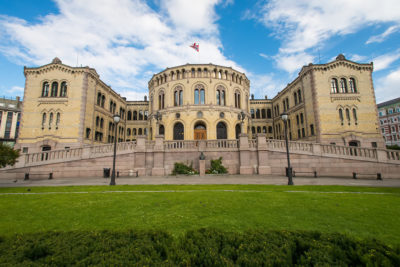The Norwegian government have assigned cross-sectoral cooperation as a prerequisite to succeed with the bioeconomy, but the effort to achieve this objective has been minor.
This is the conclusion from a review of Norway’s policy, regarding the transition to a bioeconomy society.
– The Norwegian government strives towards lower dependency on fossil fuels in the national economy, which is evident in the government’s bioeconomy strategy from 2016. Our studies however, shows that relevant sectors currently awaits initiative from the government. Pilot projects made to facilitate transitions towards a the bioeconomy society depends on government money and initiatives, explains Jostein Brobakk, researcher at Ruralis, and Gerald Schwarz, senior researcher at the German Thüenen-institute.
The analyses are based on survey material from relevant businesses, in-depth interviews, workshops with business and political actors, and analysis of public documents.
Barriers
– Integration between sectors is a prerequisite in the national bioeconomy strategy. We do not claim that it is harder to achieve the goals of the bioeconomy strategy by operating with clear divisions between different sectors, but the political vision says one cannot operate in separated sectors to succeed, says Schwarz.
Brobakk exemplifies:
– Stakeholders designate several political barriers for further development and sector integration in the bioeconomy. Grants tends to follow certain programs, which follows the government departments’ own sector areas. Another example is the directorates, which have few carrots for interdisciplinary and cross-sectoral cooperation. There are some exceptions, such as Innovation Norway, which have a number of interdisciplinary innovation programs, says Brobakk.
Phasing Out Fossils
Job creation and increased value creation based on renewable resources are key objectives in the government’s bioeconomy strategy.
– A future, where we use less black carbon, requires increased and sustainable utilization of bio resources. Personally, I believe it is hard to imagine a future completely without the use of fossil fuels, but there are big scopes of opportunities for reductions and development of replacements. When it comes to energy for transportation and heating, there are already many good alternatives to fossil-based products. For other products, such as plastic and PVC, it is more difficult to find replacement in the short term, but they exist, says Brobakk.

